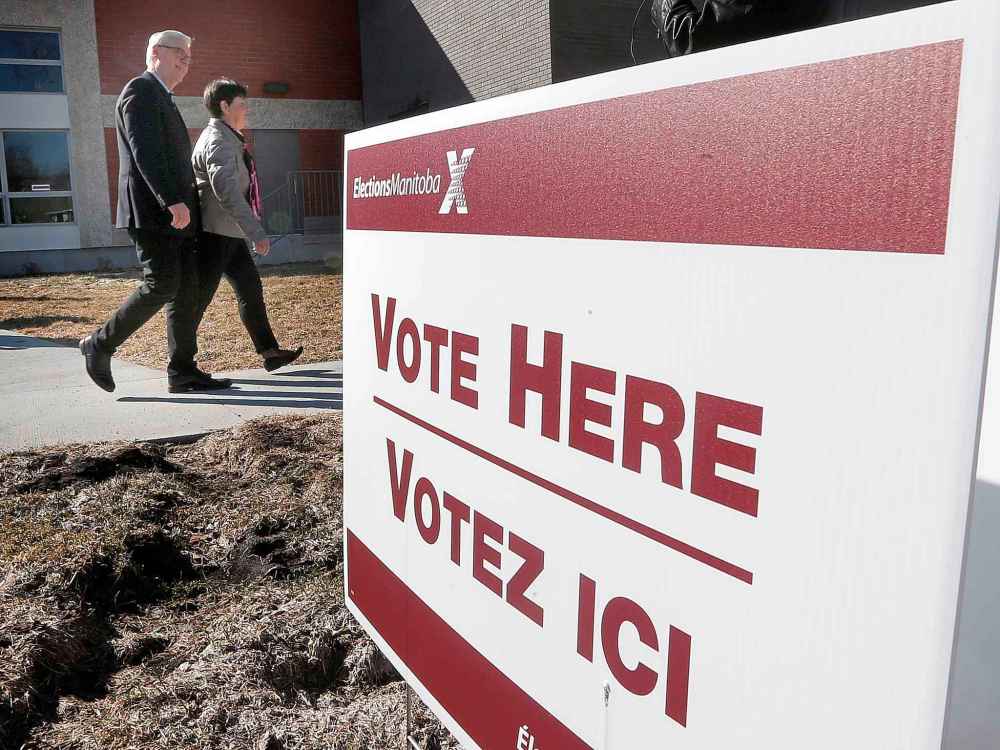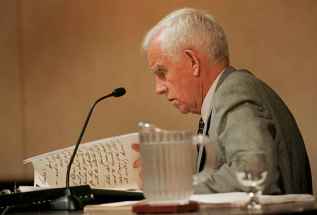Crowded calendar faces early election call
Read this article for free:
or
Already have an account? Log in here »
To continue reading, please subscribe:
Monthly Digital Subscription
$0 for the first 4 weeks*
- Enjoy unlimited reading on winnipegfreepress.com
- Read the E-Edition, our digital replica newspaper
- Access News Break, our award-winning app
- Play interactive puzzles
*No charge for 4 weeks then price increases to the regular rate of $19.00 plus GST every four weeks. Offer available to new and qualified returning subscribers only. Cancel any time.
Monthly Digital Subscription
$4.75/week*
- Enjoy unlimited reading on winnipegfreepress.com
- Read the E-Edition, our digital replica newspaper
- Access News Break, our award-winning app
- Play interactive puzzles
*Billed as $19 plus GST every four weeks. Cancel any time.
To continue reading, please subscribe:
Add Free Press access to your Brandon Sun subscription for only an additional
$1 for the first 4 weeks*
*Your next subscription payment will increase by $1.00 and you will be charged $16.99 plus GST for four weeks. After four weeks, your payment will increase to $23.99 plus GST every four weeks.
Read unlimited articles for free today:
or
Already have an account? Log in here »
Hey there, time traveller!
This article was published 30/04/2019 (2417 days ago), so information in it may no longer be current.
Despite Premier Brian Pallister’s unrelenting teasing about the possibility he may call a snap election, the window of opportunity is getting tight.
By law, the next provincial general election must be held no later than Oct. 6, 2020. However, in a series of comments and speeches in the last few weeks, Pallister has made it pretty clear he wants to go sooner — in large part (or so he says) to avoid an election campaign marring celebrations for Manitoba’s 150th anniversary throughout 2020.
Exactly how early could Pallister go to the polls? Although we’re still at a relatively early stage of 2019, it appears there are no clear, unencumbered openings.

The first issue to consider is the government must plan ahead at least 90 days prior to an election to meet provisions of the Election Finances Act, which stipulate there must be a three-month blackout of all government communications prior to any vote. There is a provision that allows the blackout to apply only to the writ period in the event of an early election call, but given that this section is designed to ensure governing parties do not used taxpayer-funded advertising to boost their re-election chances, it would be a risk for Pallister to ignore the 90-day ban.
The second issue is Manitoba elections campaigns are, by law, between 28 and 35 days in length, with the vote taking place on a Tuesday.
Taking that into consideration, if Pallister respected the full intent of the law, and started its communications blackout May 1, it would set the stage for the campaign to start sometime between June 25 (35 days) and July 2 (28 days), with an election to be held July 30.
There is no rule or law against a mid-summer election. But most political strategists would tell you it’s a bad idea to schedule a campaign that comes precariously close to both the July and August long weekends. Hell hath no fury like a Manitoban cottager scorned.
There are other, less technical and more political considerations, as well, with this scenario.
It’s unlikely the Pallister government wants to begin the blackout before it has passed legislation activating it’s much-vaunted one-point cut to the provincial sales tax. That may not happen before the scheduled completion date for the current legislative session (June 3). You may need to push the media blackout a few days past that date to allow Pallister to do a public tax cut end-zone dance underneath a “mission accomplished” banner.
Taking that into consideration, if Pallister respected the full intent of the law, and started its communications blackout May 1, it would set the stage for the campaign to start sometime between June 25 (35 days) and July 2 (28 days), with an election to be held July 30
So, let’s say the premier started the blackout after the end of session June 5. That would mean a writ drop sometime between July 30 and Aug. 6, with an election day of Sept. 3.
Tory premier Gary Filmon used a somewhat comparable snap election strategy in 1990, when he unleashed the so-called “7-11” campaign (it began Aug. 7 and ended Sept. 11) in a bid to shed his minority mandate and win a full majority.
Complicating matters for Pallister is the fact Manitoba children are scheduled to go back to school Sept. 3. The collision of an election with back-to-school day could be potentially disastrous if families resent the Tories for distracting them on what is easily the most hectic day of the school year.
Pallister could push things back further into September — like Filmon did — except that, once again, there is a complication.
Although it is not strictly forbidden in law, the Election Finances Act discourages the idea of holding a provincial campaign at the same time as a federal campaign. In the event a scheduled Manitoba election conflicts with a federal vote, the law allows the province to push back its timetable to the following April.

A federal election must be held this year no later than Oct. 21. Given federal campaigns are limited to between 36 and 50 days, that would mean Prime Minister Justin Trudeau, if he does not go earlier than Oct. 21, would have to drop a writ sometime between Sept. 1 and 15.
If Pallister were to respect the spirit of that part of the law — and there is no absolute certainty he will — he would have to wait until after the federal election to drop a writ of his own. The communications blackout could start before or during the federal campaign, but the actual beginning of a provincial campaign would have to wait until at least Oct. 22.
Using that as writ day, a 28-day campaign would produce an election Nov. 19; a 35-day campaign would mean going to the polls Nov. 26.
A fall election is absolutely doable, except it will come after the federal vote, when donors and volunteers are already tapped out and enthusiasm for yet another election is at low tide. Most first ministers would consider that period immediately after a federal election to be a high-risk, low-return window of opportunity.
It’s always possible Pallister wants less enthusiasm and scrutiny. Governments seeking re-election rarely invoke strategies to increase the voter turnout. And as the best-organized and funded party in Manitoba at the moment, the Progressive Conservatives are less vulnerable to tapped out donors and fatigued campaign volunteers.
When Pallister talks about holding an early election, he seems to imply the calendar is wide open. However, legal, practical and political considerations mean there is no easy, risk-free window for him to call an election in 2019.
Fortunately for the premier, he is not a particularly risk-averse kind of guy.
dan.lett@freepress.mb.ca

Born and raised in and around Toronto, Dan Lett came to Winnipeg in 1986, less than a year out of journalism school with a lifelong dream to be a newspaper reporter.
Our newsroom depends on a growing audience of readers to power our journalism. If you are not a paid reader, please consider becoming a subscriber.
Our newsroom depends on its audience of readers to power our journalism. Thank you for your support.
History
Updated on Wednesday, May 1, 2019 9:34 AM CDT: Clarification added.














